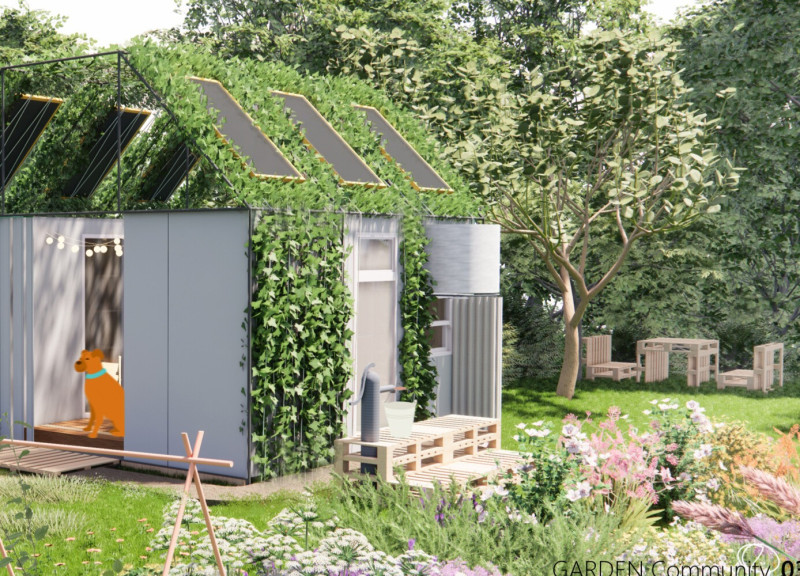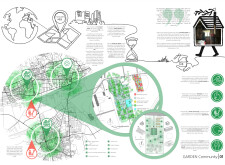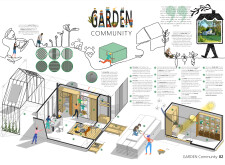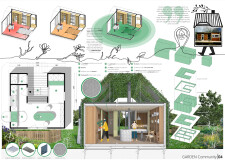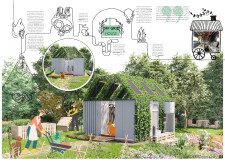5 key facts about this project
### Overview
Located in Pécs, Hungary, the GARDEN Community project aims to address housing insecurity and community revitalization through sustainable architectural practices. The development includes a mixed-use framework that encompasses a variety of residential spaces, community gardens, and facilities designed for communal engagement. Its primary intent is to foster an environment that promotes resilience and self-sufficiency among vulnerable populations, including the homeless and low-income families.
### Spatial Strategy
The site layout emphasizes community interaction and integration. Dedicated areas for community gardens allow residents to cultivate their own food, thereby enhancing local food security. The micro-housing units are designed to accommodate both single-family households and shared living arrangements, addressing diverse needs while promoting a sense of belonging. Housing configurations feature modular interiors, which enable residents to adapt spaces based on their requirements, while large windows and open layouts are oriented to maximize natural light, improving energy efficiency and interior comfort.
### Materiality and Sustainability
The project utilizes sustainable building materials that contribute to both the aesthetic and functional aspects of the development. Quikcore Topside and Wall Panels provide structural integrity and energy efficiency, while components made from recycled materials reflect a commitment to environmental responsibility. Natural insulation enhances energy conservation throughout the buildings. Green roofing systems not only support biodiversity but also aid in stormwater management, further underscoring the project's ecological sensitivity. Additionally, sustainable features such as solar panels and rainwater harvesting systems exemplify the project's focus on responsible resource management.


